A radio gets students to NASA
In Brazil, Bosch supports young talent from disadvantaged neighborhoods.
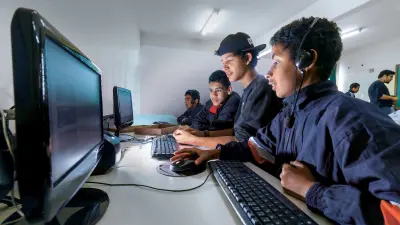
The cities of the future should offer their populations better quality of life and promote community development. To help urban transformation in Curitiba, Brazil, the regional Bosch foundation has been supporting school children in a disadvantaged neighborhood.
Smart ninjas
Three teenagers from a tough neighborhood in Curitiba, Brazil, have made it to NASA. They grew up in the city’s most populated neighborhood, the “Cidade Industrial de Curitiba” (CIC), where social inequality is the major issue. However, thanks to Robert Bosch Institute’s “We are all smart” (#WAAS) project, they have had access to a quality education at their local public school.
With the program’s support, #WAAS participants, also known as “ninjas“, learn to use technology for themselves and others. This learning helps them to realize their individual potential. The children take classes on electronic systems, hardware, and software, and develop technical solutions in teams. In 2017, the three ninjas Raul, Mateus, and Jennifer developed Juno Radio. Their project was submitted to the Space Apps Challenge, which earned them a trip to NASA at the beginning of 2018.
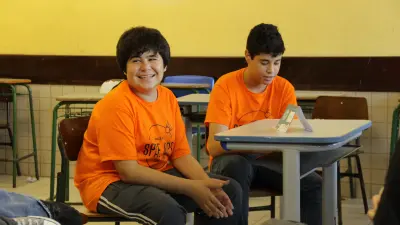
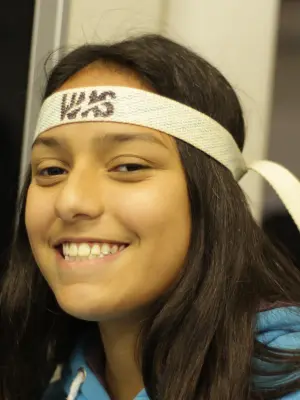
The #WAAS project has changed my life completely.
The good old radio is back!
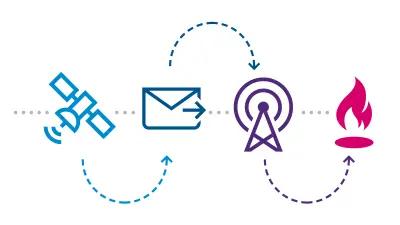
In 2017, NASA’s Space Apps Challenge called on participants to help fight fire. The ninjas focused on developing technical solutions to protect Brazilian forests from fires. In remote areas without Internet, the risk of wildfire is higher, as local fire brigades do not receive warnings by e-mail. This is where Juno Radio comes in: it turns digital data from NASA satellites – for instance, the coordinates of possible sources of fire – into analog information, which it then transmits to radio stations across the country. It makes possible for NASA fire alarms to reach the areas concerned almost in real time.
#WAAS participant Mateus was in charge of the team’s hardware. With his classmate Marx, he developed the largest part of the radio. At the same time, his classmate Raul helped Daniel, the #WAAS representative, with coding the programming interfaces. NASA has supported the teenagers from CIC with their idea, which they continue to develop. The fire brigade will soon be testing Juno Radio in Cerrado forest, which is at risk of fire. The solution will thus help to protect the second largest ecosystem in Brazil.
“I’ve always dreamed of visiting NASA.”
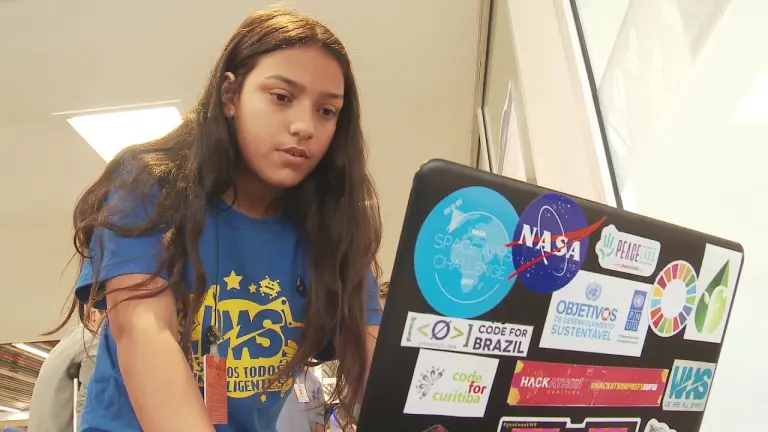
Loading the video requires your consent. If you agree by clicking on the Play icon, the video will load and data will be transmitted to Google as well as information will be accessed and stored by Google on your device. Google may be able to link these data or information with existing data.
Robert Bosch Institute Curitiba on the success of #WAAS
A regional commitment around the world
Robert Bosch Institute supported the #WAAS 2017 project with some 42,500 reals (11,000 euros), thus pursuing the aim of helping young people to improve their futures with technology and education. In turn, it will have a positive impact on communities that suffer from poverty, drugs, and crime.
The project is just one example of the educational projects that Bosch supports at its locations in Brazil. In the United States, China, and India, regional Bosch foundations are also committed to improve quality of life and promoting community development. The foundations support a variety of projects, mainly in the field of education. In 2017, a total of 24.6 million euros was spent on charitable initiatives.
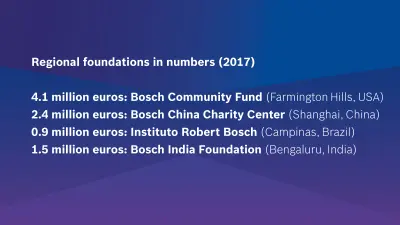
Summary
With the #WAAS project, Robert Bosch Institute is promoting the technical education of children and youth from a disadvantaged neighborhood in Curitiba, Brazil. In 2017, #WAAS students made it to NASA with their project, Juno Radio.